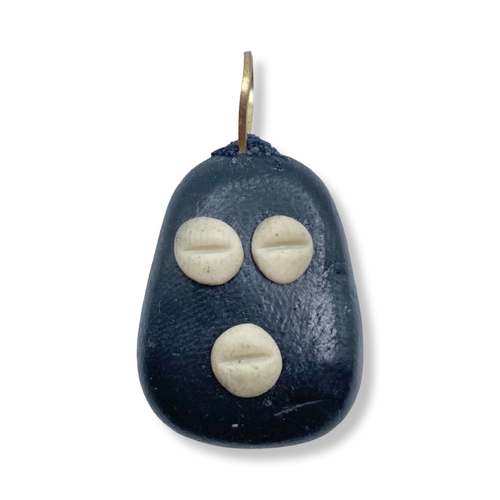Origins and Significance
Obatala Oshagrinan stands as one of the most revered deities in Yoruba religion, known as the creator of human form and the embodiment of wisdom and purity. The name derives from "Oba ti ala" (King of the White Cloth), reflecting his association with purity and clear thinking.
Etymology of the Name
The title Oshagrinan specifically refers to one of his most important manifestations. This name emphasizes his role as the creator and protector of human heads, which are considered the seat of destiny in Yoruba tradition.
Position in Yoruba Pantheon
As Olodumare's eldest child, Obatala holds a privileged position in the divine hierarchy. He leads the Orishas on Earth and bears responsibility for the physical formation of human beings.
The Paths of Obatala
24 Manifestations
Obatala expresses himself through 24 different paths, each carrying unique characteristics and teachings. These manifestations represent various aspects of his power and wisdom, ranging from warrior to healer, from judge to spiritual teacher.
Spiritual Importance
Each path of Obatala teaches specific lessons about life, morality, and spiritual development. His teachings emphasize inner peace, justice, and purity of thought.
Symbols and Attributes
Sacred Colors and Elements
White dominates all aspects of Obatala worship, symbolizing purity and clarity. His sacred elements include silver, ivory, and objects associated with peace and justice.
Traditional Offerings
Offerings to Obatala must reflect his pure nature. White foods like meringue, coconut, and cotton are presented. Alcohol and other spirits are prohibited in his rituals.
Rituals and Ceremonies
Major Festivals
Celebrations honoring Obatala are characterized by solemnity and respect. The most important occurs during the annual "Day of Obatala," where devotees dress entirely in white and perform sacred dances.
Initiations
Initiation processes related to Obatala are particularly rigorous, requiring periods of purification and abstinence. Initiates must demonstrate sincere commitment to principles of peace and justice.
African Diaspora Influence
Religious Syncretism
During the African diaspora, Obatala became synchronized with various Catholic figures, primarily Jesus Christ and Our Lady of Mercy, due to associations with purity and justice.
Presence in the Americas
Obatala's influence remains strong throughout the Americas, especially in Cuba, Brazil, and Puerto Rico, where his teachings have integrated into local religious practices.
Modern Relevance
Today, Obatala's principles continue to resonate with practitioners worldwide. His emphasis on clear judgment, moral purity, and peaceful resolution of conflicts offers valuable guidance in contemporary life.
Conclusion
Obatala Oshagrinan remains a central figure in Afro-Caribbean and Afro-American spirituality, representing the highest ideals of purity, justice, and wisdom. His influence transcends cultural and religious boundaries, offering universal teachings about peace and harmony.
Frequently Asked Questions (FAQ)
- What makes Obatala different from other Orishas? Obatala's unique position as the creator deity and his association with purity and wisdom sets him apart in the Yoruba pantheon.
- Why is white clothing important in Obatala worship? White clothing symbolizes the purity and clarity of thought that Obatala represents and teaches.
- What are the main responsibilities of Obatala? His primary duties include creating human forms, maintaining cosmic justice, and guiding spiritual development.
- How does Obatala influence daily life? Devotees seek his guidance for clarity in decision-making, peaceful conflict resolution, and moral direction.
- What is the significance of the 24 paths? Each path represents a different aspect of Obatala's wisdom and teaches specific spiritual lessons.































































